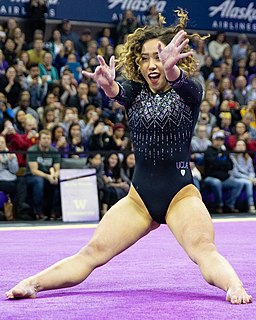A Quote by Sergei Bubka
You need to work very hard, you have to spend a lot of time practicing your sport - six to seven hours daily.
Related Quotes
We should be able to bring the practice of meditation hall into our daily lives. We need to discuss among ourselves how to do it. Do you practice breathing between phone calls? Do you practice smiling while cutting carrots? Do you practice relaxation after hard hours of work? These are practical questions. If you know how to apply meditation to dinner time, leisure time, sleeping time, it will penetrate your daily life, and it will also have a tremendous effect on social concerns.
A big reason why we were able to and have been able to continue to succeed is that we had a very intense work ethic, right from the beginning. There was a do-or-die attitude toward the work. It wasn't seen as a little "club." It was like, "This is your life." We would spend hours and hours rehearsing and endlessly rewriting. We took it very seriously right off the bat. And we were also extremely critical of each other, which was another thing that was unique. A lot of comedy ensembles have a hard time being critical of each other, because they don't want to hurt each other's feelings.
Some folks call tennis a rich people's sport or a white person's game. I guess I started too early because I just thought it was something fun to do. Later, I discovered there was a lot of work to being good in tennis. You've got to make a lot of sacrifices and spend a lot of time if you really want to achieve with this sport, or in any sport, or in anything truly worthwhile.
When you learn an instrument, it takes an awful lot of time to just learn the scales, and then eventually when you have completely mastered the instrument, the music plays for you. But you still have to keep practicing. And it takes an awful lot of practice. Nonetheless, if you diligently practice, hours and hours and hours and hours, you probably won't get it. You'll probably just end up hurting your fingers.
Asian players are very eager to work hard, but they don't have the physicality of the Europeans, so they might actually need to work twice as hard. With street football, their skills will improve a lot, and so will their tactical awareness, because by playing within a limited space, you need to be very focused on your game.






































